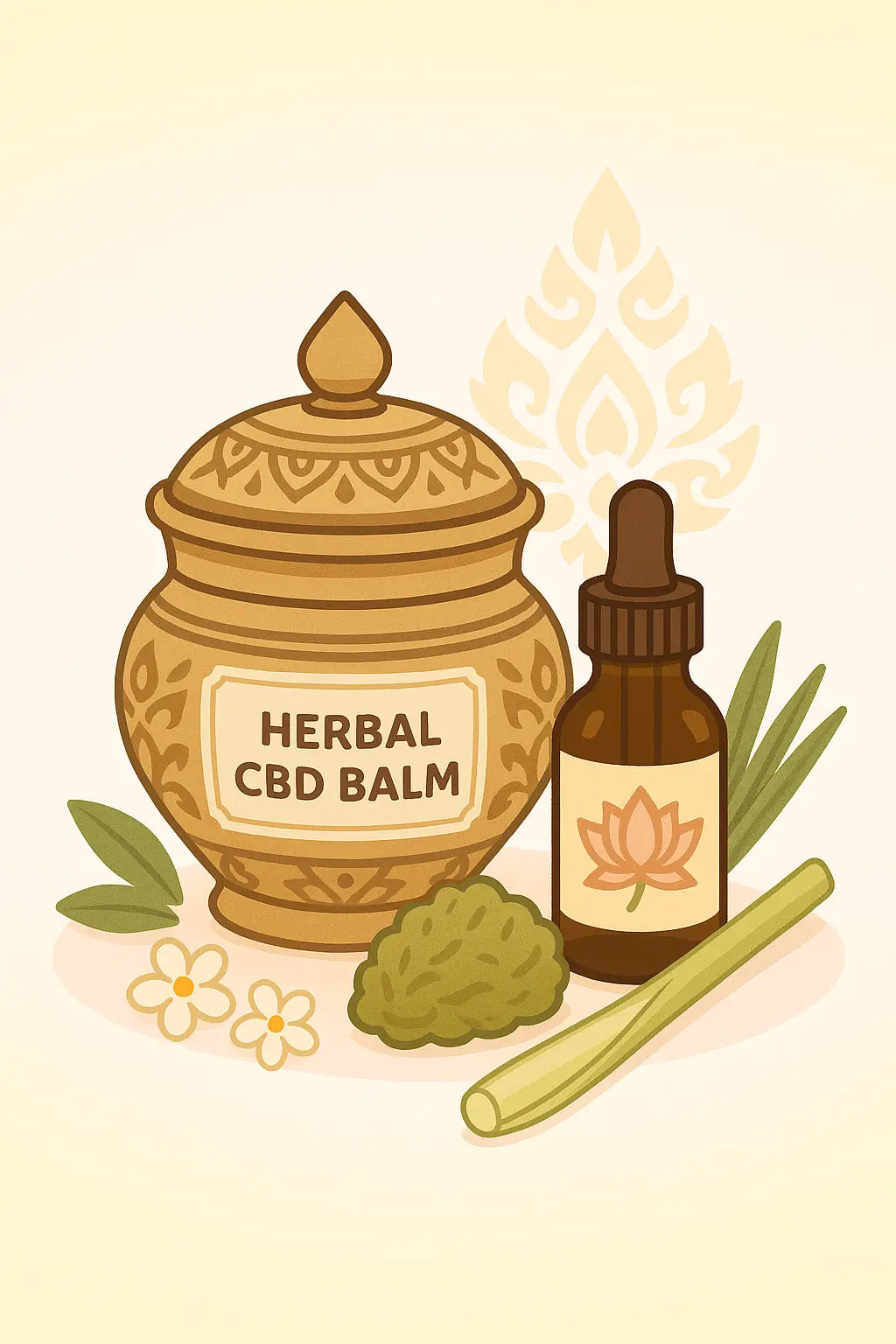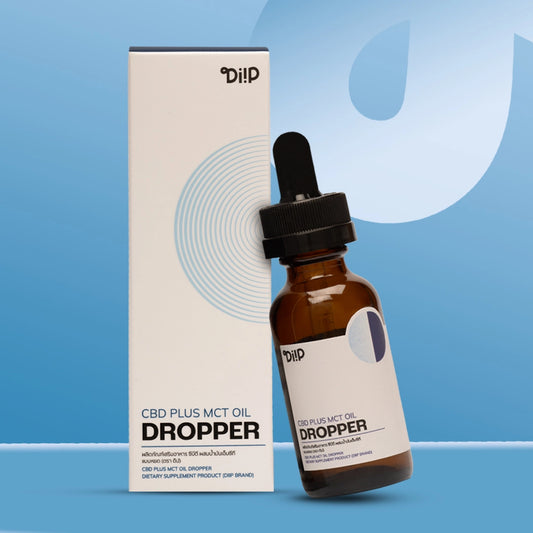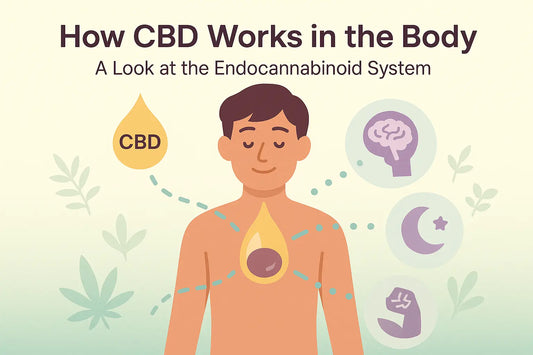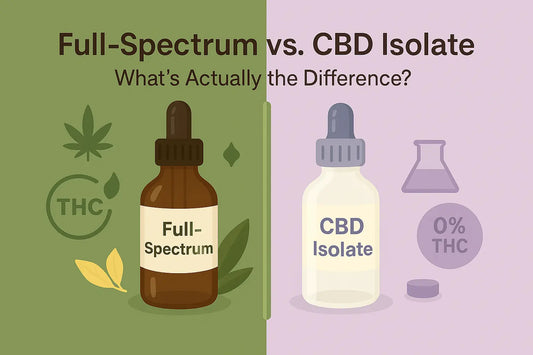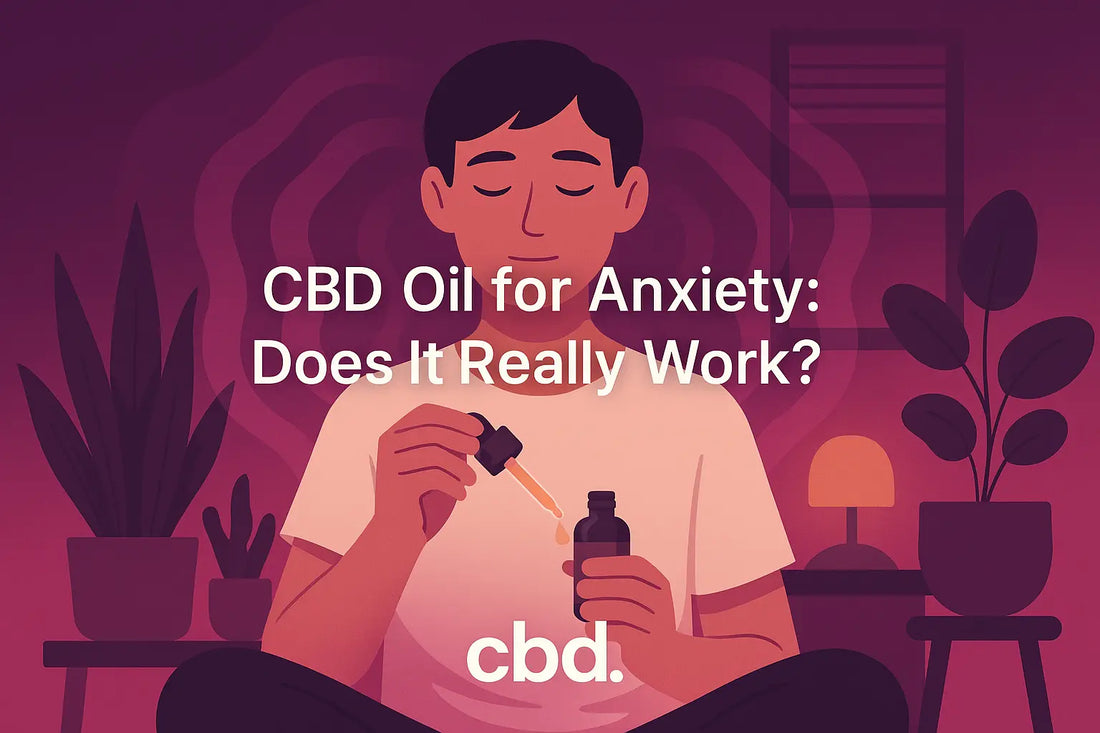
CBD Oil for Anxiety: Does It Actually Work?
Cenk CetinShare
Introduction
CBD oil has gained significant attention in recent years as a natural remedy for various health concerns, particularly anxiety. As more people seek alternatives to traditional medications, CBD’s potential calming effects have sparked widespread interest.
Anxiety disorders are among the most common mental health conditions, affecting millions worldwide. Symptoms such as excessive worry, restlessness, and panic attacks can impact daily life, leading many to explore different treatment options. But does CBD oil truly help with anxiety, or is it just another wellness trend? This article explores the science behind CBD’s effects on anxiety, its potential benefits, and what research says about its effectiveness.
Key Takeaways
- CBD is a non-psychoactive compound from cannabis, it’s known for its calming effects and potential to ease anxiety.
- CBD interacts with your body’s endocannabinoid system, balancing stress hormones and boosting mood-regulating neurotransmitters.
- Studies suggest CBD can help with generalized anxiety, social anxiety, PTSD, and panic disorder–though more research is needed.
What is CBD Oil?
CBD (cannabidiol) is a naturally derived compound present in cannabis. In contrast to THC, the substance responsible for cannabis's psychoactive effects, CBD does not induce a high. Instead, it is known for its potential therapeutic properties, including relaxation and stress relief.
CBD oil is extracted from hemp, a variety of cannabis that contains high levels of CBD and minimal THC. The extraction process typically involves CO2 or ethanol methods to ensure purity and potency. Once consumed, CBD interacts with the body’s endocannabinoid system (ECS), a complex network of receptors responsible for regulating mood, sleep, pain, and stress. By influencing these receptors, CBD may help promote balance and overall well-being, making it a popular choice for those seeking natural relief from anxiety.
Anxiety and Its Impact
Anxiety is a natural response to stress, but for many people, it can become overwhelming and persistent, interfering with daily life. It is characterized by symptoms such as excessive worry, restlessness, rapid heartbeat, difficulty concentrating, and trouble sleeping. In its more intense forms, anxiety may trigger panic attacks and lead to avoidance behaviors.
Anxiety disorders are among the most common mental health conditions worldwide. According to global health organizations, millions of people experience anxiety, with studies showing that nearly 1 in 5 adults in the U.S. alone are affected each year.
Conventional anxiety treatments often involve prescription drugs like SSRIs (Selective Serotonin Reuptake Inhibitors) and benzodiazepines, along with therapeutic methods such as Cognitive Behavioral Therapy (CBT). While these treatments can be effective, they may also come with side effects or long-term dependence, leading many to explore natural alternatives like CBD oil.
Research on CBD Oil for Anxiety
Scientific interest in CBD as a potential treatment for anxiety has grown significantly in recent years. Multiple studies have explored its effects on anxiety-related conditions, with promising results in both animal and human trials.
Overview of Studies on CBD and Anxiety
Early research suggests that CBD engages with the body’s endocannabinoid system, affecting neurotransmitters such as serotonin, which is crucial for mood regulation. Research on animals indicates that CBD may have anxiety-reducing properties, while human trials have explored its potential in treating anxiety disorders.
Key Findings from Research
-
A 2019 study published in The Permanente Journal found that 79% of participants experienced reduced anxiety within the first month of using CBD.
-
Research from Neurotherapeutics (2015) concluded that CBD shows potential as a treatment for various anxiety disorders, including generalized anxiety disorder (GAD), social anxiety disorder (SAD), and post-traumatic stress disorder (PTSD).
- A study published in Neuropsychopharmacology in 2011 investigated the effects of CBD on anxiety induced by simulated public speaking in patients with social anxiety disorder (SAD).
Effectiveness for Different Types of Anxiety
CBD oil has been explored as a possible aid for various anxiety-related conditions, including:
-
Generalized Anxiety Disorder (GAD): Studies indicate CBD may help regulate excessive worry and tension.
-
Social Anxiety Disorder (SAD): Research suggests CBD may improve social interactions and reduce public speaking anxiety.
-
Post-Traumatic Stress Disorder (PTSD): Some studies highlight CBD’s potential in managing PTSD symptoms, including reducing nightmares and intrusive thoughts.
- Panic Disorder: Although research is limited, early findings suggest CBD may help reduce the frequency and intensity of panic attacks.
Although these results are encouraging, further large-scale clinical trials are necessary to establish CBD’s long-term effectiveness and ideal dosage for anxiety relief.
How CBD Oil May Help With Anxiety
CBD oil has been recognized as a potential natural remedy for anxiety due to its interaction with the body’s endocannabinoid system (ECS) and its influence on neurotransmitters that regulate stress and mood. Although studies are still underway, early research indicates that CBD may alleviate anxiety symptoms through various mechanisms.
The Role of CBD in Regulating Stress and Mood
The ECS is crucial for regulating balance and stability within the body. It influences various physiological functions, including mood, stress response, and emotional regulation. CBD is thought to influence CB1 and CB2 receptors, which in turn impacts the body's response to stress and anxiety.
CBD may also reduce cortisol levels, the hormone responsible for the body’s fight-or-flight response. By helping regulate stress hormones, CBD could promote a sense of calm and relaxation.
Potential Calming Effects of CBD
Many users report that CBD provides a calming, grounding effect without the psychoactive high associated with THC. This is supported by studies suggesting that CBD may help:
- Reduce excessive worry and intrusive thoughts
- Promote relaxation by decreasing hyperactivity in brain regions linked to anxiety
- Enhance sleep quality, which is frequently disturbed by stress and anxiety
Evidence of CBD’s Impact on Serotonin and Other Neurotransmitters
It is believed that CBD interacts with serotonin receptors (5-HT1A) in the brain. Serotonin is a neurotransmitter that plays a key role in mood regulation, and imbalances are often linked to anxiety and depression. Some studies suggest that CBD enhances serotonin signaling, similar to how traditional antidepressants work, potentially offering relief from anxiety symptoms.
Additionally, CBD may influence GABA (gamma-aminobutyric acid), a neurotransmitter that helps slow brain activity and promote relaxation. By enhancing GABA function, CBD could contribute to reducing overactive thoughts and feelings of nervousness. Although these mechanisms show CBD's potential, more clinical research is required to fully comprehend its impact and establish the optimal doses for alleviating anxiety.
Dosage and Usage of CBD Oil for Anxiety
Finding the right CBD dosage and method of consumption is essential for achieving optimal anxiety relief. Since individual responses to CBD vary, it’s important to start with a cautious approach and adjust based on personal experience.
Recommended Dosage for Anxiety Relief
There is no universal CBD dosage for anxiety, as it depends on factors like body weight, metabolism, tolerance, and severity of symptoms. However, studies and user reports suggest:
-
Low dose: 5-15 mg per day (for mild anxiety or beginners)
-
Moderate dose: 15-50 mg per day (for general anxiety relief)
- High dose: 50-100 mg per day (for more severe cases, under medical guidance)
It’s best to start low and gradually increase until the desired effects are achieved.
Methods of Consumption
CBD comes in various forms, each with different absorption rates and durations of effects:
-
CBD Oils & Tinctures – Taken sublingually (under the tongue) for fast absorption (15-45 minutes). Ideal for flexible dosing.
-
CBD Capsules & Softgels – Provide precise dosing but take longer to kick in (30-90 minutes).
-
CBD Edibles (Gummies, Chocolates, etc.) – Convenient and tasty but have delayed effects due to digestion (60-120 minutes).
-
CBD Vapes – Offer the fastest relief (within minutes) but effects wear off quickly. (Vaping is not legal in Thailand)
- CBD Topicals – Applied to the skin for localized relief, but not typically used for anxiety.
Timing and Frequency of Use
-
Daily Use: Many users take CBD once or twice a day for consistent anxiety management.
-
As-Needed Use: Some prefer using CBD only during stressful situations, such as before social events or presentations.
- Before Bedtime: If anxiety disrupts sleep, taking CBD 30-60 minutes before bed may help with relaxation.
How to Start Using CBD Oil for Anxiety Safely
- Start with a low dose (5-10 mg) and observe how your body responds.
- Increase gradually if needed, allowing a few days between adjustments.
- Monitor effects on mood, stress levels, and any side effects.
- Choose high-quality CBD products that are third-party tested for purity and potency.
- Consult a healthcare provider if taking medications or managing other health conditions.
Recap
CBD oil holds potential as a natural solution for anxiety, with studies indicating it may assist in managing stress and mood by affecting neurotransmitters such as serotonin. While many users report relief, its effects vary, and more clinical studies are needed. It’s crucial to consult a healthcare provider before using CBD, particularly for individuals taking medication. Choosing high-quality CBD, starting with a low dose, and monitoring its effects can help ensure safe and effective use. While not a guaranteed solution, CBD may serve as a helpful tool for managing anxiety when used responsibly.
